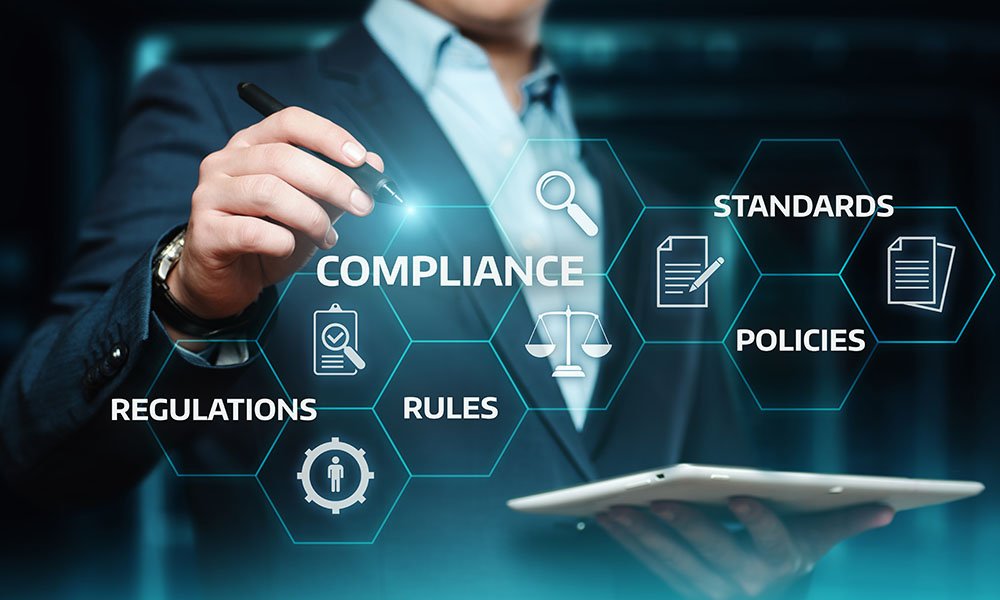Compliances

Compliances
What is a Compliance Audit?
A compliance audit is a structured evaluation of a company’s protocols and activities, primarily centered on determining whether the organization is adhering to its internal regulations, policies, directives, and procedures.
What is Compliance?
Compliance refers to the act of adhering to rules, regulations, standards, and policies set forth by governing bodies, industry associations, and internal guidelines. It encompasses a wide range of areas, including but not limited to, legal requirements, industry-specific regulations, data privacy laws, and ethical standards.
Our Compliance Resources:
Compliance Guides: Access comprehensive guides and resources covering various compliance topics, including data protection, financial regulations, environmental standards, and more.
Regulatory Updates: Stay informed about the latest changes in regulations and compliance requirements relevant to your industry.
Training and Education: Enhance your team’s compliance knowledge with training programs, webinars, and workshops tailored to your organization’s needs.
Compliance Tools: Explore a range of compliance software solutions and tools designed to streamline compliance management processes and ensure accountability.
Consultation Services: Benefit from expert guidance and consultation services to assess your current compliance posture, identify areas for improvement, and develop customized compliance strategies.
At getmyaudit, we are committed to helping you navigate the complexities of compliance and build a strong foundation for sustainable business success. Explore our Compliance Resource Center to access valuable insights and support tailored to your compliance needs. Let us partner with you on your compliance journey!
Request for a call back
Some key aspects and objectives of a compliance audit
- Identifying relevant laws, regulations, and contractual obligations.
- Assessing compliance across various areas like financial reporting, data protection, and safety.
- Evaluating the effectiveness of internal controls and procedures.
- Assessing risks associated with non-compliance and the effectiveness of risk management.
- Reviewing documentation for compliance.
- Conducting testing and sampling to identify non-compliance.
- Reporting findings and making recommendations for corrective actions.
- Following up to ensure implementation of corrective actions and ongoing compliance.

Implementation of Compliance
Compliance Programs: Organizations establish compliance programs to ensure ongoing adherence to regulations and standards. These programs typically include policies, procedures, training, monitoring, reporting mechanisms, and enforcement measures.
Training and Awareness: Employee training and awareness programs educate staff about compliance requirements, ethical standards, and their role in maintaining compliance. Training helps foster a culture of compliance and responsible conduct throughout the organization.
Monitoring and Auditing: Regular monitoring, auditing, and internal reviews are conducted to assess compliance with laws, regulations, and internal policies. Audits help identify areas of non-compliance, weaknesses in internal controls, and opportunities for improvement.
Enforcement and Discipline: Organizations enforce compliance through disciplinary measures for violations of laws, regulations, or internal policies. Disciplinary actions may include warnings, sanctions, fines, termination of employment, or legal proceedings, depending on the severity of the violation.

